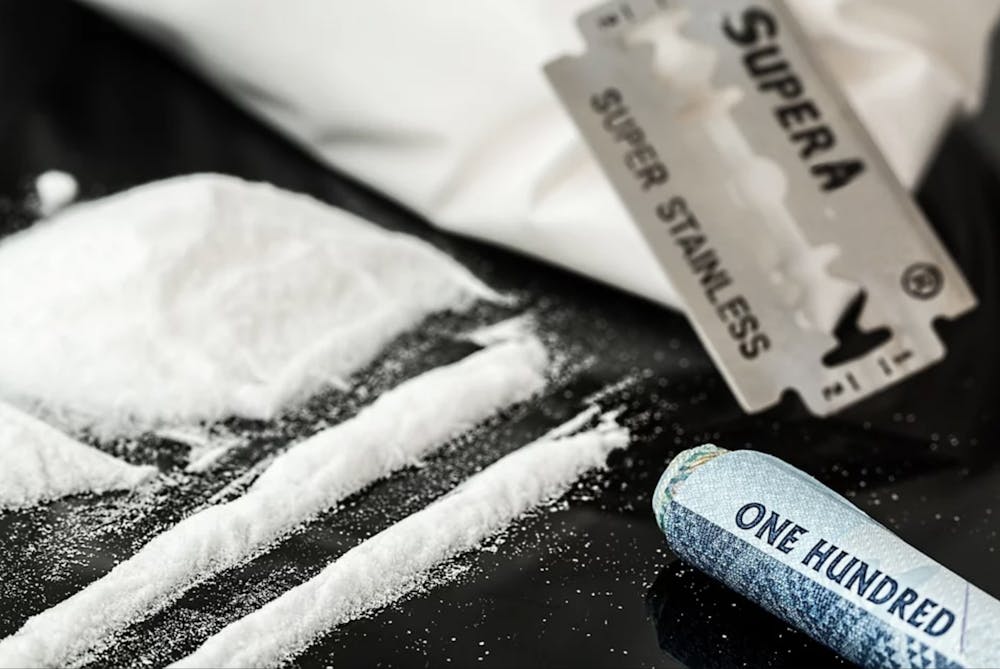Every fall, Duke offers free flu shots to combat the imminent storm of the virus. Thanks to the work of Professor of Pathology Herman Staats, a similar vaccine is on the horizon for those with another debilitating disease: cocaine addiction.
Staats worked with a team of six other researchers to publish a novel study providing evidence of a possible vaccination for cocaine addiction. Following vaccine injection in mice, the researchers were able induce an immune resistance to cocaine in the mice, while reducing the sense of euphoria which accompanies cocaine usage.
The vaccine consisted of cocaine attached to carrier proteins, which were introduced in mouse mucosal tissue.
“Just like the influenza vaccine induces antibodies that bind to the influenza virus and reduces the infectivity of influenza, our cocaine vaccine induces antibodies that bind to cocaine and reduce the ability of cocaine to cause the euphoria,” Staats said.
Over the course of one month, scientists infused different amounts of the cocaine vaccine into the bloodstreams of mice. Another group of mice remained cocaine-free for the entirety of the period. Then, following a month without any shots, the researchers applied full-dosage cocaine shots to the rats.
The results were staggering. Those who had received the initial vaccines exhibited far less severe side effects of cocaine, and the ramifications of cocaine in each vaccine-receiving mouse’s brain was reduced significantly.
The vaccine’s effects were boosted by the adjuvant mastoparan-7, which created a more powerful immune response to the vaccine.
“Sometimes vaccine adjuvants are effective with one vaccine and not effective with another vaccine,” Staats said. “We were happily surprised that mastoparan-7 was an effective adjuvant.”
Since the basic format of the vaccine is easily replicable by combining the drug with the protein, this research is especially useful to combat opioid abuse due to increased accessibility.
Before formally introducing this vaccine to the market, Staats emphasized that the lab must delve much deeper before arriving at a formal conclusion. Part of this gap stems from the lack of application of mouse proteins to humans.
Cocaine is a Schedule II substance, which means that it has the high potential for abuse and presents potentially adverse psychological effects, yet has legitimate medical acceptance. Today, cocaine is legally used as a topical anesthetic and as a remedy for severe nosebleeds.
Steven Duke, a professor of law at Yale Law School, has published extensively on the subject of drug legalization. In an email to The Chronicle, he expressed little optimism for cocaine legalization but acknowledged that it was possible.
“New discoveries such as a vaccine envisioned by the [University] group might produce a fundamental reconsideration of cocaine prohibition,” Duke wrote. “Moreover, if marijuana legalization becomes an indisputable success, that too might trigger a basic reevaluation of cocaine prohibition.”
Furthermore, given the ramifications of the opioid epidemic, especially in rural parts of the country, Duke wrote that he did not anticipate a conversation regarding the decriminalization of “hard” drugs until the country addresses those issues.
Get The Chronicle straight to your inbox
Signup for our weekly newsletter. Cancel at any time.

